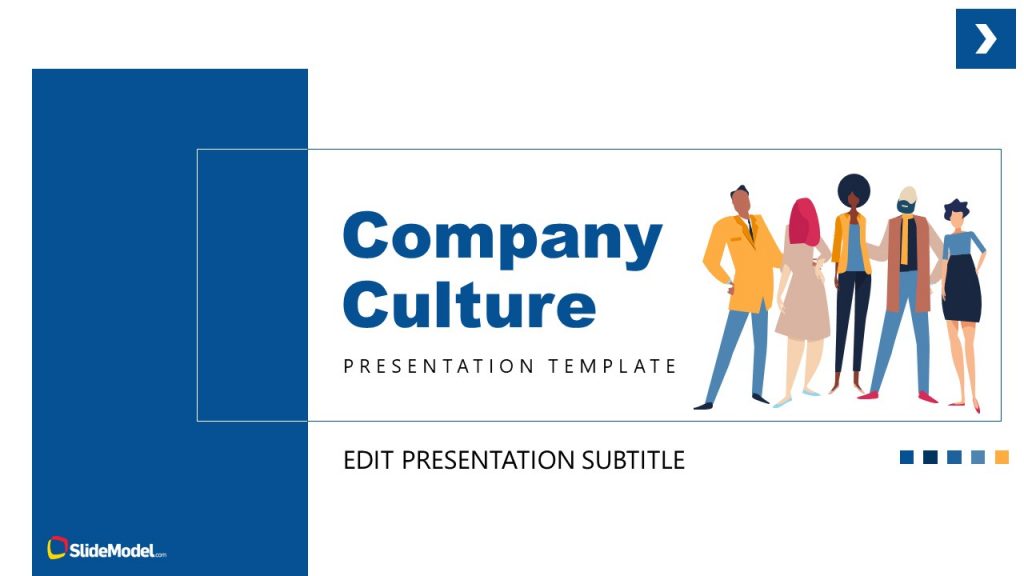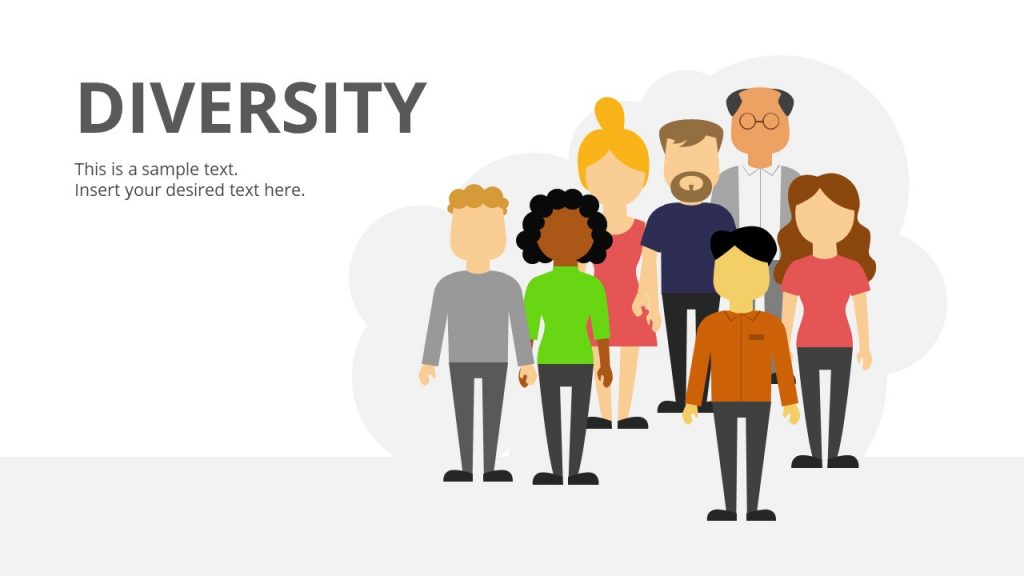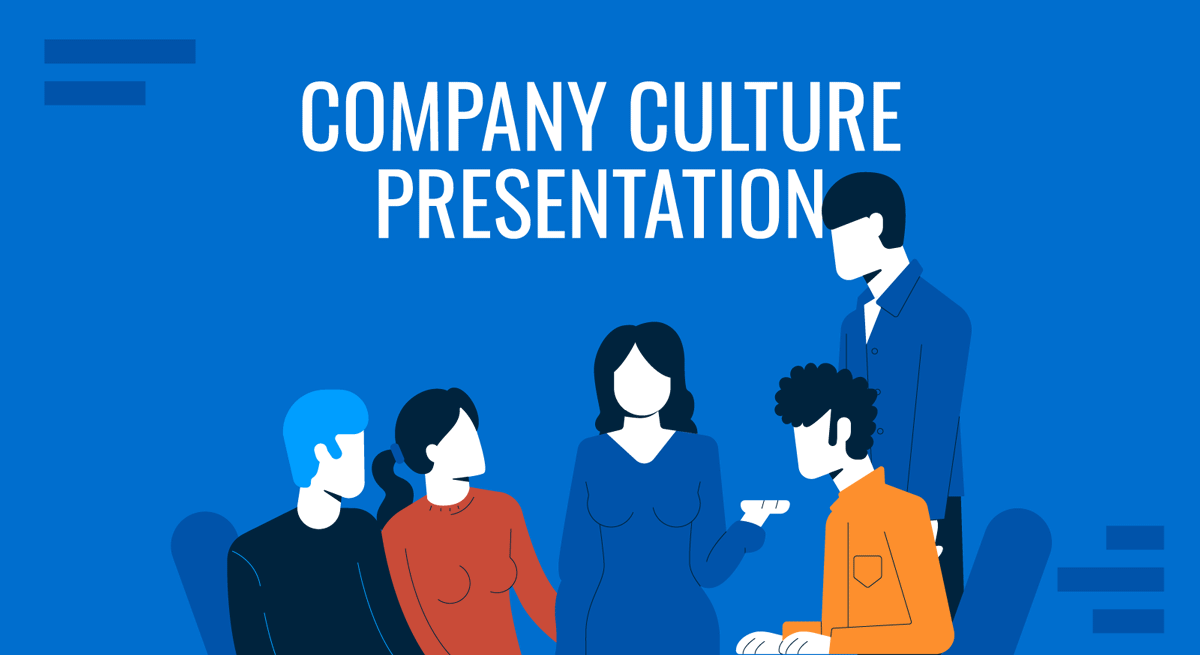
A company culture presentation is a powerful way to share the values, beliefs, and practices that define an organization. It’s an opportunity to connect with employees, stakeholders, or potential recruits by highlighting what makes the company unique and meaningful. Beyond introducing core values, a presentation on company culture can inspire pride, clarify expectations, and create a sense of unity within the team.
Whether part of onboarding, a leadership meeting, or an external pitch, a corporate culture presentation can shape how people perceive the organization. It offers a chance to show what the company does and who it is. A business culture presentation can leave a lasting impression by blending compelling stories, clear messages, and impactful visuals. Stay tuned to this article to learn how to create a professional company culture PPT deck.
Table of Contents
- What do we call Company Culture?
- What is a Company Culture Presentation?
- Elements of a Company Culture Presentation
- How to Be Creative in a Company Culture Presentation
- Common Mistakes in a Company Culture Presentation
- Recommended Company Culture PPT Templates
- FAQs
- Final Words
What do we call Company Culture?
Company culture refers to the shared values, beliefs, attitudes, and behaviors that define how employees interact, make decisions, and carry out their work within an organization. It is the company’s collective personality, encompassing everything from leadership styles and communication norms to workplace policies and traditions.
At its core, company culture reflects the organization’s mission, vision, and values. These principles guide how employees approach their roles, solve problems, and collaborate. For example, a company prioritizing innovation will encourage risk-taking and creative thinking, while one focused on customer service will emphasize empathy and responsiveness.
Culture is also shaped by visible elements, such as office layout, dress codes, and team-building activities, as well as intangible factors, like how conflicts are resolved, how leaders motivate teams, and how feedback is given. It influences whether employees feel valued, supported, and aligned with the organization’s goals.
A strong company culture creates a sense of belonging, improves employee morale, and enhances productivity. It also plays a critical role in attracting and retaining top talent as candidates increasingly seek workplaces that align with their values and priorities. Conversely, a toxic or poorly defined culture can lead to low engagement, high turnover, and reputational damage.
What is a Company Culture Presentation?
A company culture presentation is a visual and verbal communication tool designed to articulate the essence of an organization’s culture. It reflects the shared values, beliefs, and behaviors that shape how employees interact, make decisions, and approach their work. These presentations are critical for onboarding, leadership alignment, and reinforcing company identity.
Key purposes include:
- Onboarding new employees: Introducing core values, mission, and vision to help new hires integrate seamlessly.
- Strengthening team cohesion: Highlighting shared goals and cultural pillars to unify diverse teams.
- Promoting employer branding: Showcasing the company’s culture to attract top talent or inspire stakeholder confidence.
- Celebrating achievements: Recognizing milestones that align with cultural principles, fostering pride and motivation.
A business culture presentation typically encompasses the organization’s mission, vision, values, work environment, and employee testimonials. A company culture PowerPoint template may also include expectations regarding behavior, communication styles, and decision-making processes for internal audiences. When shared externally, a culture presentation might emphasize the company’s role in the community, its commitment to diversity, or its environmental initiatives.
Elements of a Company Culture Presentation
A company culture presentation should provide an in-depth understanding of the organization’s identity by covering several critical elements. Each component builds a narrative that explains what the company values, how it operates, and what makes it unique. Below is a detailed breakdown of what to include and how to present it effectively.
Mission and Vision
The mission and vision are the foundation of any company culture presentation. The mission statement explains why the company exists—its purpose and the impact it aims to make. For example, a technology company might state its mission as “Empowering businesses through innovative and accessible software solutions.” This conveys its focus on both innovation and its target audience.

The vision statement, on the other hand, outlines where the company aspires to be in the future. It provides a long-term goal that inspires both employees and stakeholders. For instance, “To become the global leader in sustainable and transformative technology” conveys ambition and values. The mission and vision must be presented with examples of how they manifest in daily operations. Stories, visuals, or metrics that showcase progress toward these ideals will make this section more compelling.
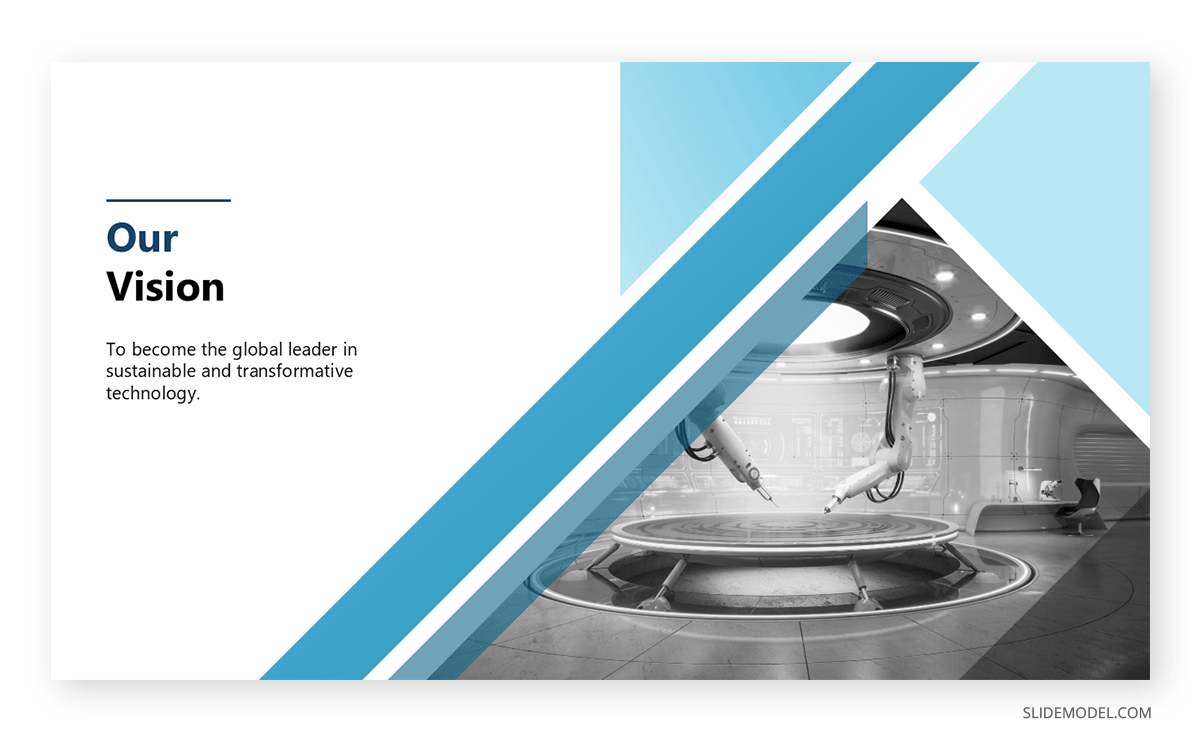
Core Values
Core values are the principles that guide decision-making, employee behavior, and company policies. They reflect the organization’s prioritization, such as collaboration, innovation, integrity, or customer focus. These values need to be more than words on a slide—they must be demonstrated through real-life examples. For instance, if the company values innovation, you might share a story of how an employee developed a groundbreaking idea or product. Supporting this with visuals, such as a short video or employee testimonial, helps reinforce authenticity.
Leadership Philosophy
A strong presentation should highlight how leaders exemplify cultural values through actions and decisions. For instance, if the company values transparency, the leadership team might hold regular town halls to share updates and answer employee questions openly. Including short video clips or quotes from leaders discussing their personal commitment to the culture adds a human touch. Leadership slides are a powerful element to depict this point.
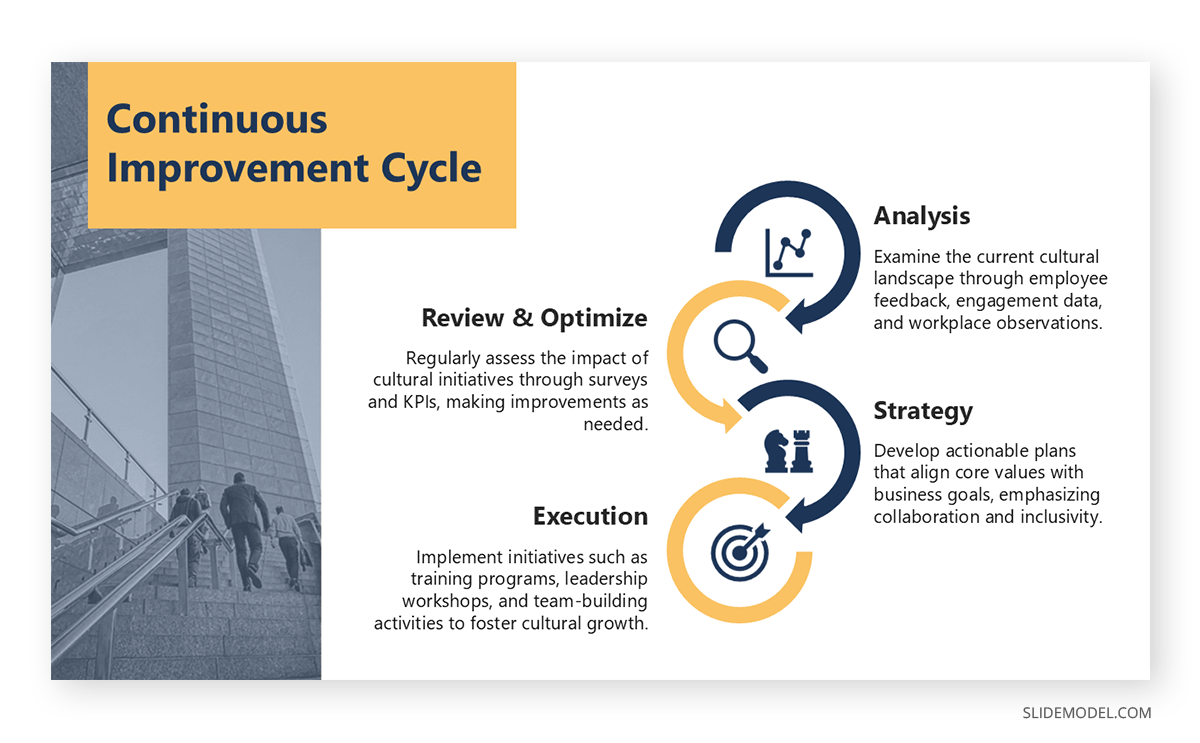
For example, a CEO explaining how their open-door policy has led to better communication across departments can illustrate the leadership philosophy effectively.
Workplace Environment
The physical and virtual workspace is a tangible representation of company culture. This section should describe how the workplace reflects the organization’s values. For example, an office with open collaboration spaces, vibrant design, and wellness zones reflects a culture of teamwork and employee well-being. For remote-first companies, this might focus on tools and policies that enable flexibility and inclusivity, such as digital collaboration platforms or virtual team-building activities. Consider as well instances like training presentations, as they are opportunities for career growth that employees certainly value.
Additionally, this section should include policies that promote work-life balance. Highlight initiatives such as flexible working hours, mental health resources, or wellness programs. For instance, “Our employees have access to meditation apps, weekly yoga sessions, and personal days to recharge” illustrates a commitment to employee health.
Diversity, Equity, and Inclusion (DEI)
Many things have been said online about DEI hires, but, in fact, every company should consider this topic part of their company culture. This section should detail the company’s efforts to create an inclusive environment where employees of all backgrounds feel valued. Discuss initiatives like mentorship programs for underrepresented groups, unbiased hiring practices, or employee resource groups. Data can add credibility here; for instance, presenting metrics on gender balance or growth in diverse leadership can demonstrate tangible progress.
Employee Perspectives
Nothing conveys culture more authentically than the voices of employees. This section should include testimonials, video clips, or stories illustrating how employees experience the company’s values daily. For instance, an employee might describe how a company policy allowed them to balance their career and personal life or how a collaborative culture helped them succeed on a challenging project. Using real employee photos or videos can further humanize the message.
Employee Spotlight
An effective way to bring company culture to life is by featuring individual employees who embody its values. An Employee Spotlight slide allows organizations to share authentic stories that inspire others and demonstrate how cultural principles translate into real actions.
This section can include:
- Short bios and photos of selected employees representing different teams or regions.
- Personal stories describing how they have contributed to the company’s mission or upheld its core values.
- Quotes or interviews that reflect what working at the company means to them.
- Visual highlights, such as a short video clip or infographic summarizing key achievements.
For instance, a company might feature a marketing manager who led a successful diversity campaign or a product engineer who innovated a solution that aligns with the company’s sustainability goals.
Including employee spotlights in a company culture presentation helps personalize abstract values. It creates emotional resonance and reinforces that the company’s culture is built through the actions of its people.
At SlideModel, we do have many different layouts for employee spotlight slides & presentation that you can use to enhance this section in your company culture presentations.
Recognition and Celebrations
A vibrant company culture thrives on recognition and celebration. This section should cover how the company acknowledges employee achievements and milestones.
Examples might include awards for innovation, shout-outs during meetings, or annual cultural events. For instance, “Our annual ‘Culture Fest’ brings together teams from all over the world to celebrate our values through workshops, games, and team-building activities.” Photos or short clips of past events can make this section shine in terms of making an engaging presentation.
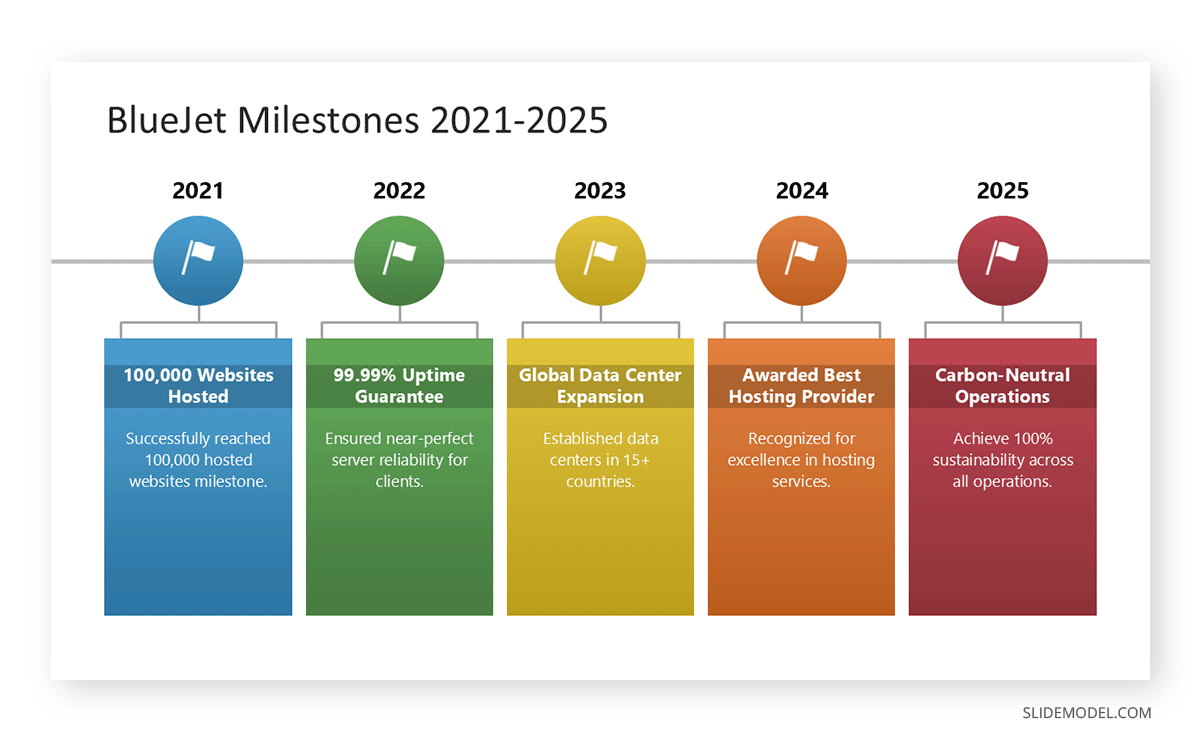
Future Goals and Cultural Evolution
Company culture is not static—it evolves as the organization grows. Conclude by outlining the company’s cultural goals for the future. For example, “Over the next five years, we aim to achieve 50% representation of women in leadership roles” conveys a commitment to growth and improvement. Pairing these goals with actionable plans or timelines helps demonstrate that the organization is actively working to enhance its culture.
How to Be Creative in a Company Culture Presentation
Creativity can elevate your company culture presentation, making it memorable and impactful. Consider these strategies:
- Storytelling: Narrate compelling stories about employees embodying the company’s values. For instance, share how a team overcame challenges through collaboration.
- Interactive Elements: Use polls, quizzes, or live Q&A sessions to engage your audience actively.
- Multimedia Integration: Combine videos, PowerPoint animations, and infographics to diversify content delivery and keep energy levels high.
- Theme-Based Design: Tie the presentation to a theme that resonates with your audience. For example, a “building bridges” theme could symbolize teamwork and inclusivity.
- Gamification: Incorporate games or challenges related to company culture to make learning more engaging.
Common Mistakes in a Company Culture Presentation
In this section, we’ll list down the most common issues that can affect the performance of any business culture presentation.
- Generic Statements Without Context: Presenting vague statements like “We value teamwork” without providing examples or context makes the message feel superficial.
- Overemphasis on Achievements: Focusing only on successes while ignoring challenges or areas for improvement can make the presentation feel unrealistic or disingenuous.
- No Interaction Opportunities: Delivering a one-sided presentation without opportunities for audience engagement, such as Q&A sessions, reduces interest and participation.
- Excessive Jargon: Using industry-specific or internal jargon can confuse or alienate your audience, especially new employees or external stakeholders.
- Poor Visual Design: Slides cluttered, inconsistent, or outdated graphics can undermine the message’s credibility.
- Not Showcasing Real Employees: Relying on stock photos or generic visuals instead of real employee images or stories can make the presentation feel inauthentic.
- Not Providing Takeaways: Failing to leave the audience with summary materials or links to additional resources can make it harder for them to internalize the key messages.
Recommended Company Culture PPT Templates
Are you looking to speed up the presentation design process for company culture slides? If so, these PowerPoint templates can give you a professional-quality result in no time. The best part? They also work as Google Slides templates.
FAQs
What is the primary goal of a company culture presentation?
The primary goal is communicating the company’s values, beliefs, and practices, fostering understanding and alignment among employees, stakeholders, or external audiences.
Who is the target audience for a company culture presentation?
Depending on the presentation’s purpose, the audience can include new hires, current employees, leadership teams, investors, and potential recruits.
How long should a company culture presentation be?
It depends on the audience and context, but typically, it should range from 15 to 30 minutes to maintain engagement while covering all necessary points.
What role does storytelling play in a cultural presentation?
Storytelling makes the presentation relatable and memorable by showing real-life examples of the company’s culture.
What tools can help in creating a company culture presentation?
Tools like PowerPoint, Google Slides, and Keynote can create visually appealing slides. Video editing tools like Adobe Premiere Pro or iMovie can add dynamic content.
What type of visuals work best in a culture presentation?
Photos of employees, team activities, infographics, and branded visuals work best as they humanize the content and emphasize the culture’s authenticity.
How can you measure the success of a culture presentation?
Success can be measured through audience feedback, engagement metrics (like participation in Q&A), and post-presentation surveys.
How often should a company update its culture presentation?
It should be updated annually or whenever significant changes occur in the company’s values, leadership, or cultural initiatives.
Can humor be used in a company culture presentation?
Yes, humor can make the presentation more engaging, provided it aligns with the company’s tone and avoids being inappropriate or distracting.
Should a company culture presentation include mistakes or challenges faced by the organization?
Yes, acknowledging challenges and how they were overcome demonstrates transparency and builds trust with the audience.
How can a presenter handle sensitive cultural topics?
Approach sensitive topics like diversity or mental health with care, using factual data, real-life examples, and a respectful tone.
Should the presentation include future cultural goals?
Yes, discussing future goals helps convey that the company is committed to evolving and improving its culture.
What’s an effective way to close a company culture presentation?
End with a call to action, such as inviting feedback, joining a cultural initiative, or sharing thoughts about the company’s values.
Final Words
A presentation on company culture is a powerful tool for inspiring, aligning, and informing. By focusing on authenticity, creativity, and clarity, you can craft a corporate culture presentation that resonates with employees and stakeholders alike. Avoid common pitfalls and leverage storytelling, visuals, and interactivity to make your message memorable. With thoughtful planning and execution, your business culture presentation can become a cornerstone of organizational success.
